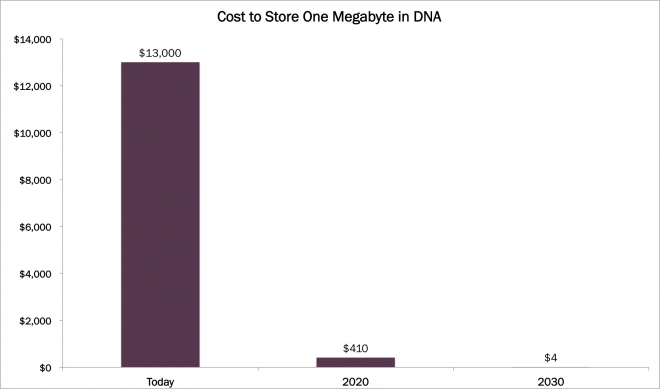DNA: The Ultimate Data Storage Solution?

DNA, which contains the code of life, could become the most robust storage solution for all kinds of data in the long run. In 2013, a European Bioinformatics Institute study showcased the potential for nucleic acids not only as a practical way to store information, but one much more compact and permanent than current options. DNA storage has a major advantage over hard disk drives: integrity.
As a highly stable molecule, DNA does not break down over time. If kept in a cool place, it can store information for hundreds of thousands of years. And, it can store huge amounts of data in almost no space at all. One gram of DNA can store more than 2,000 terabytes (TB) of data, 100 times the amount of data stored in the Library of Congress, in the space of a fingertip.
While much more compact and permanent than hard disk drives ever will be, DNA storage is prohibitively expensive at this time. It costs roughly $13,000 to encode one megabyte (MB) of data and more than $200 to decode it. Though much less than the inflation-adjusted cost per MB of the first hard disk drives in the mid1950s, it has a long way to go to become competitive with other storage solutions at today’s prices. Based on Moore’s Law, ARK forecasts that DNA storage costs could drop below $5 per MB by 2030, as shown below.

DNA will never replace the hard drive completely, but its long-term storage potential could be almost incomprehensible. Right now, DNA stores the code of all human life. In the future, it could store all information produced by human life.





